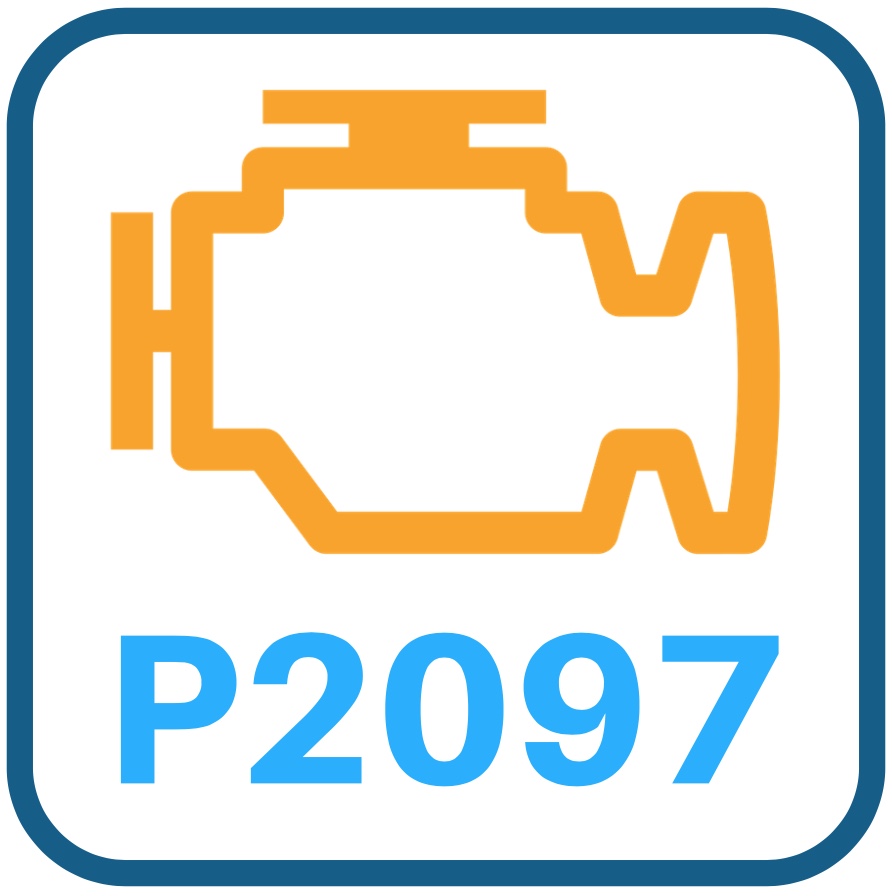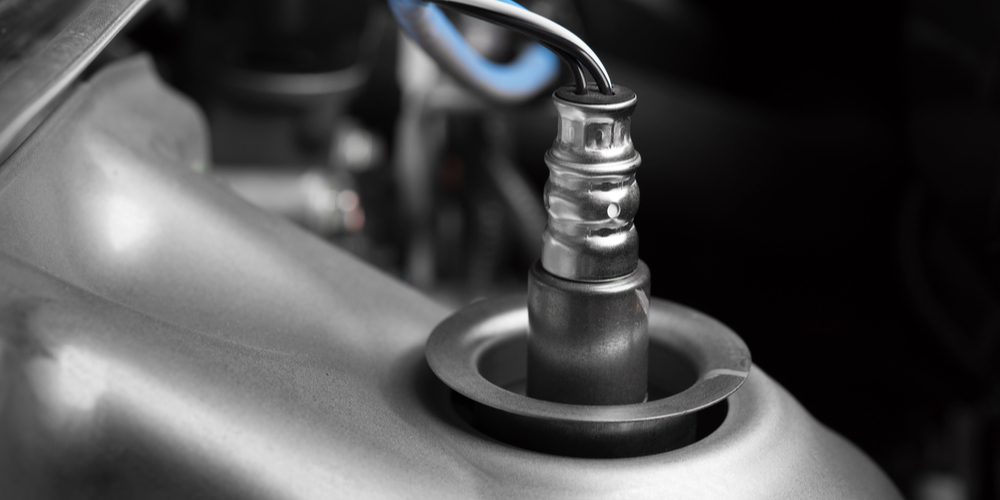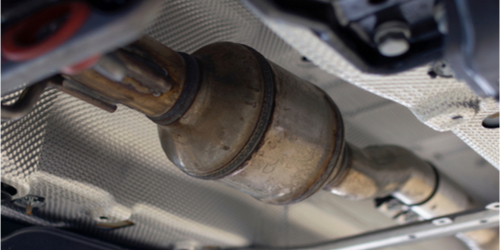P2097 is a generic OBD II code, which means that it has the same meaning for the Toyota Sequoia as it would any other vehicle. It specifically indicates that your Sequoia detected that air-fuel mixture reading as the exhaust gas exits the catalytic converter is too rich. (too much fuel for the amount of fuel present).
P2097 Meaning

Post Catalyst Fuel Trim System – Too Rich – Bank 1
Post Catalyst Fuel Trim System
Post catalyst means whatever is happening is after the catalytic converter (in terms of exhaust flow). Your Sequoia’s catalytic converter is responsible for breaking down exhaust gasses and making them inert, which greatly decreases emissions output.
Too Rich
The fuel trim system is what your Toyota Sequoia uses to adjust the air-fuel ratio for optimum combustion. There is an oxygen sensor located after your catalytic converter (on the bank 1 side, we’ll get to that in about 30 more seconds of reading time), reporting that the air/fuel ratio is too rich (too much fuel to the amount of air) when leaving the catalytic converter.
Bank 1
The term “bank” refers to a row of cylinders. So, the number of cylinder heads your Sequoia has determines the number of banks (it can only be one or two banks).
V-6, V-8, and even V-10 engines all have two cylinder heads, and therefore two banks of cylinders. If bank 2 were the problem, the code that you’d pick up would be P2099.
P2097 can appear on engines with one or two banks. If you have an inline-four or inline-six, bank 1 is the ONLY bank that your Sequoia’s engine has. You can skip this section.
If you do have two banks, you’re going to need to determine which side of the engine is bank 2.
While it is annoying to have to find bank 2, having two banks is nice since we can use the “swap test” to diagnose and determine if the oxygen sensor is bad or not using only an end wrench and your OBD2 scanner.
P2097 Symptoms: Toyota Sequoia
Typically, if your Sequoia registered P2097 there will be noticeable symptoms. Here are some of the most common ones:
- Rough running engine/poor performance
- Decreased MPG
- Check Engine Light
P2097 Causes + Diagnosis: Toyota Sequoia
Here are the typical causes of P2097. A good code scanner will aid immensely in the diagnosis. Typically, this code will be accompanied by other codes that can help you narrow down exactly what is causing it.
Diagnosing P2097 by itself can be a challenge due to everything you need to look at being underneath your Toyota Sequoia. If there are any other codes that are present, cross-reference the common causes with these and see what they share in common.
The first thing you should do is check the wiring to the O2 sensor. It can often be brittle or damaged as your Sequoia ages. Next, take a quick look at the exhaust system and see if you can find any obvious leaks.
Oxygen Sensor

A bad oxygen sensor is one of the most common reasons that you’ll see P2097. You’ll need to test the sensor and determine if it is bad or good. Here’s more on diagnosing a bad O2 sensor in your Sequoia.
If you have a V-6 or V-8 engine, you can swap the post cataltyic converter O2 sensors and see if the code “jumps” to the other side. If it does, you know that the oxygen sensor is bad. Here’s how to do it:
- First, clear the DTC codes with your scanner.
- Swap the Bank 2 Sensor 1 O2 sensor with the Bank 1 Sensor 1. They’ll be on or right after each catalytic converter on each side of the exhaust.
- Run the engine until the check engine light comes back on.
- If the code changes to P2099 (which indicates the O2 sensor on Bank 2 post catalyst is too rich), that is proof enough that your Sequoia needs a new O2 sensor.
- If the code remains P2097, you’ll need to continue pursuing your diagnosis, knowing that both O2 sensors are working fine.
Exhaust/Catalytic Converter

Take a look at the exhaust system. Are there any holes? Tap on your Sequoia’s catalytic converter with a hammer or mallet. If you hear something rattling around in there, the catalytic converter has probably failed.
A clogged catalytic converter is a common cause of P2097. A converter that is really bad will glow red and your Sequoia will have a hard time accelerating. The reason that this happens is that it’s so clogged that it can no longer pass exhaust gas freely, which really can alter the reading from the downstream oxygen sensor.
If this is the case, you’ll likely get P0420. Here’s more on diagnosing a bad catalytic converter.
Mass Airflow Sensor
If there is an issue with the mass airflow sensor, your Sequoia’s PCM will not be able to properly control the air fuel mixture.
Conclusion: P2097 Toyota Sequoia
The odds are that this code will be accompanied by a related trouble code. If it is not, start with the easier stuff:
- If it’s not accelerating right, but doesn’t seem to have a misfire it’s probably the catalytic converter. It should feel like it’s running out of wind as the speed increases.
- Use a code scanner to check how the oxygen sensor is performing during real-world driving. If it is showing erratic readings, it may need to be replaced. Take a look at the wiring around it first and make sure that it is snug and undamaged.
Good luck diagnosing your Toyota Sequoia. If you discover anything that could help the next visitor of this page, please leave a comment below.

